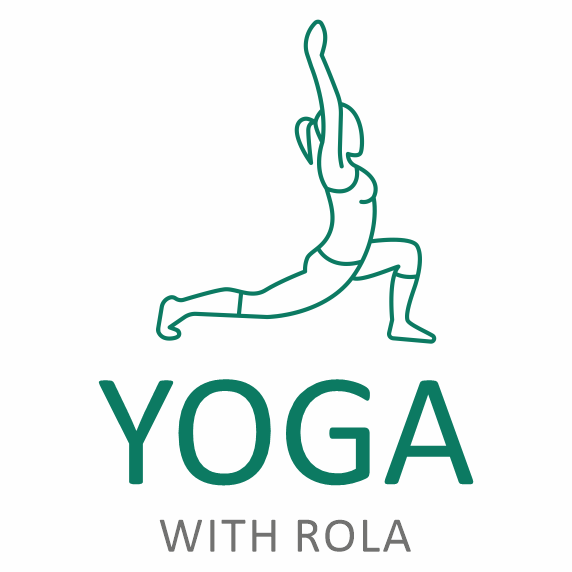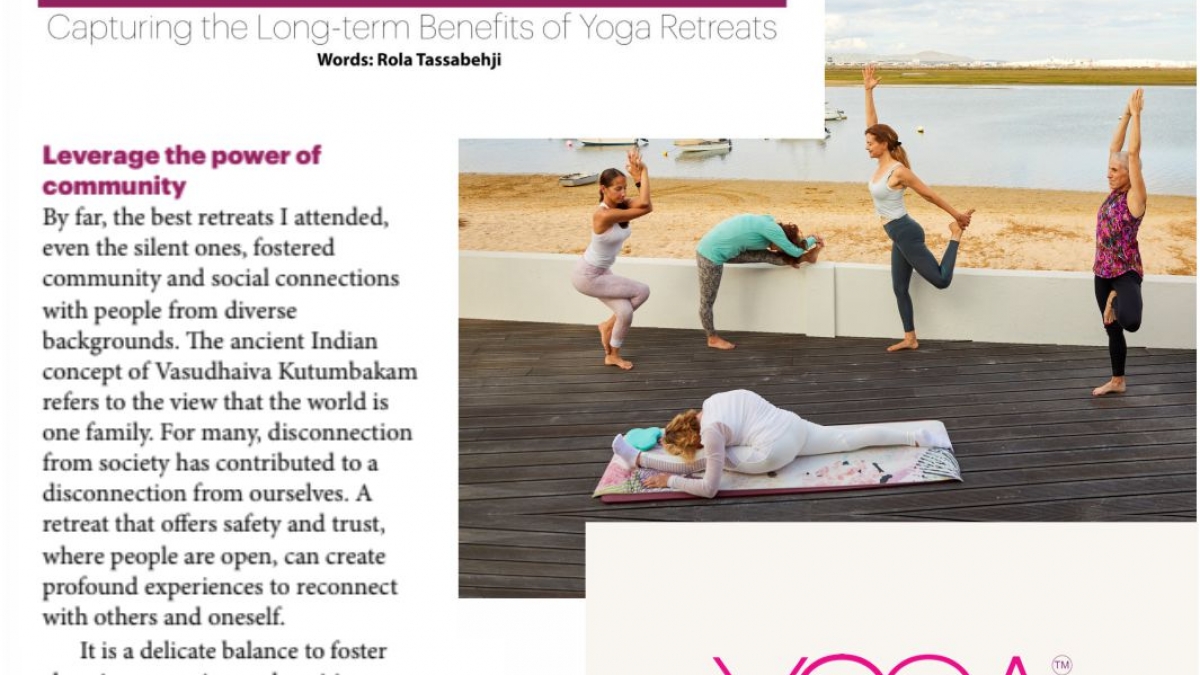As features in Yoga Magazine, November 2021 issue
As Europe continues to witness the first signs of recovery from an ongoing COVID-19 pandemic, yoga and wellness retreats are seeing a resurgence in places like Portugal and Spain. The trend is proof of the mental, emotional and physical toll that the pandemic has caused and the need for renewal after being cocooned for more than a year. Even among the lucky few who have had it easier than others, there is a growing awareness of the need to actively cultivate health and immunity before a crisis or health setback happens — following the Chinese proverb, “dig the well before you’re thirsty.”
However, as travel ramps up, it is easy to get lost in the moment and choose a retreat that is forgotten a few days after you come back home. From experience as a retreat planner and guest of many yoga retreats worldwide, here are a few insights to keep in mind before deciding on your next exotic and possibly expensive retreat destination.
Revisit the meaning of retreat
A good starting point is to go back to the root meaning of the word. A dictionary definition of retreat is the act of moving back or withdrawing (for example, “from enemy forces as a result of their superior power or after a defeat”). This definition implies that the destination per se is not as important as long it is a private and safe place. Today, the term has evolved and is commonly used as a noun, often referring to quiet study and careful reflection from normal activities and duties.
The Global Wellness Institute traces the link between health and the pleasure of escape to ancient times. Looking at Western history, the public baths of ancient Greece and Rome had both social and therapeutic multifunctional benefits, serving as destinations for learning and leisure. While the practice largely died out in the Middle Ages, it reemerged around the 18th century in Europe around towns with natural springs. A global trend of health-focused spa destinations began, giving rise to resorts that helped escape urban lifestyle and stress.
With the rise of a wellness culture focused on external appearances in the 20th century, many of these retreats in Europe and the U.S. began focusing on weight loss and healthier lifestyles. More recently, destination spas began championing a mind-body-spirit connection with a range of treatments and activities — moving nearer to the original, deeper meaning of the word as a safe, quiet destination away from the danger.
Stay close to nature
While every yoga destination has something unique to offer to yoga enthusiasts and wellness travelers in general, yogis have long known the therapeutic effects of nature, with shifting seasons a reminder that constant change is both natural and unpredictable. Research confirms that nature brings about a substantial physical and mental transformation. Bestselling author Richard Louv goes further, linking “nature deficit disorder” directly to some of the childhood trends, such as the rises in obesity, attention disorders, anxiety and depression.
The Japanese coined the word “forest bathing” or “Shirin-yoku” to describe nature’s transformative and therapeutic aspect to restore balance. Bathing in the forest or nature refers to taking the time to bask in nature with all the five senses. Research into the physiological effects of Shinrin-yoku confirms that time spent in nature reduces blood pressure and the stress hormone cortisol and improves immune function. Academic research has also shown the effectiveness of a “park prescription intervention,” programs promoting population health through physical activity (PA) and exposure to nature on health.
During COVID-19 social distance restrictions and lockdowns, outdoors meant safety first and foremost. But as more people engage in outdoor activities, a sense of reconnecting to nature as a refuge emerges. While choosing your next retreat, try to choose one that is more nature-based, simple, and off the beaten track to fully integrate into a natural setting and benefit from the health benefits of your forest bath.
Retreat to a mind and body holistic experience
The unfolding impact of mental stress from isolation, anxiety and fear are reflecting in our bodies. During the pandemic, about 4 in 10 adults in the U.S. have reported anxiety or depressive disorder symptoms, up from one in ten adults who reported these symptoms from January to June 2019. In the U.K., young adults and women have been more likely to report larger fluctuations in self-reported mental health and wellbeing than older adults and men.
It is, therefore, no surprise that retreats with deeper, more meaningful offerings to support mental health through meditation or other forms of relaxation — beyond the traditional spa — are particularly popular during these times. Traveling can take us out of our daily routine and gain a wider perspective. But choosing a retreat designed to offer an array of holistic activities, such as workshops, motivational panels, music therapy, and discussions focused on well-being in every form – body, mind and soul – can contribute to the long-term pursuit of health and balance.
Leverage the power of community
By far, the best retreats I attended, even the silent ones, fostered community and social connections with people from diverse backgrounds. The ancient Indian concept of Vasudhaiva Kutumbakam refers to the view that “the world is one family”. For many, disconnection from society has contributed to a disconnection from ourselves. A retreat that offers safety and trust, where people are open, can create profound experiences to reconnect with others and oneself.
It is a delicate balance to foster deep introspection and positive relationships during a short retreat. However, a yoga-focused retreat makes it more accessible as most people share similar values. And if they feel safe, they are likely to be authentic and ready to listen or respect your need for quiet time.
The idea of escaping somewhere new to focus on self-care, even if only through massages and body treatments, will for many of us always be appealing. But withdrawal from ordinary stresses and demands at home can be far more beneficial if done with the understanding that retreats provide experiences to reset and reenergize mind and body to feel more balanced, more refreshed, and lighter— equipped with better coping mechanisms to deal with inevitable challenges ahead. With this in mind, take time to choose your retreat wisely— not so much as an escape, but more for coming home to oneself.



Add a Comment